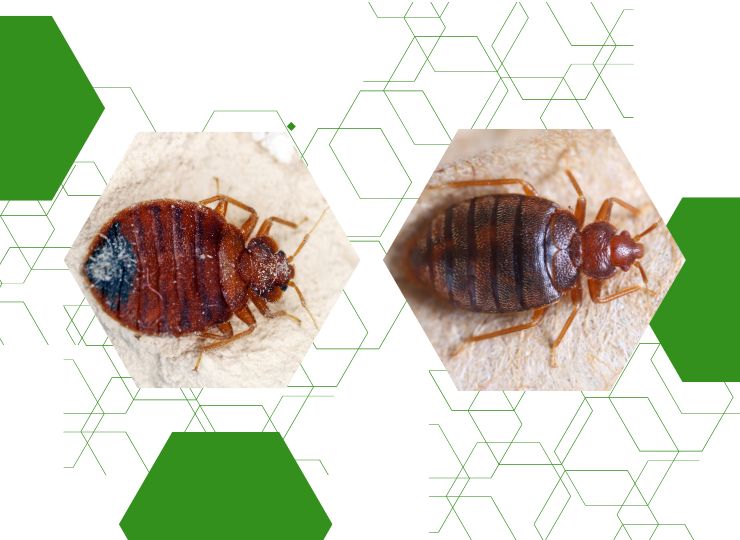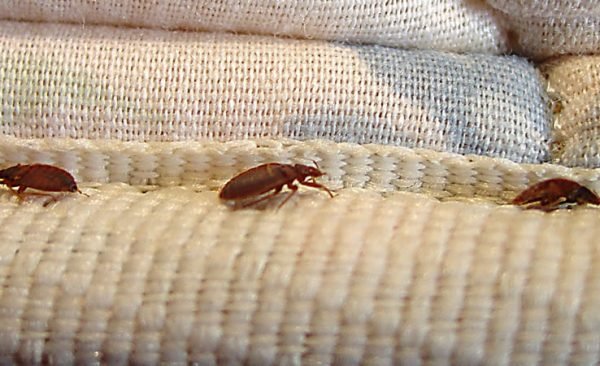Get Informed Regarding the Kinds Of Parasite Control Techniques and Their Advantages for Homeowners
Comprehending the numerous parasite control methods offered to home owners is essential for reliable bug management. Homeowners that are knowledgeable can make strategic options that not only address bug issues however also enhance the total quality of their living setting.
Chemical Pest Control Approaches
Chemical parasite control approaches are a crucial element of incorporated pest management methods for home owners looking for effective solutions to pest infestations. These techniques involve the application of chemical materials designed to remove or discourage pests that threaten personal effects, wellness, and comfort. Usual chemicals utilized include insecticides, rodenticides, fungicides, and herbicides, each customized to target specific pests.
The primary benefit of chemical bug control is its quick efficiency; numerous formulas provide prompt results, minimizing pest populations significantly quickly. Furthermore, breakthroughs in chemical formulations have brought about items that are a lot more eco-friendly and have lower toxicity levels for non-target microorganisms when applied correctly.

Biological Pest Control Strategies
All-natural insect control methods have gotten importance as property owners look for more secure and much more sustainable alternatives to typical chemical approaches. Organic pest control techniques use natural killers, parasites, or microorganisms to handle pest populations successfully. This approach is not just eco-friendly yet also minimizes the danger of harm to non-target types, including helpful insects and wildlife.
One of one of the most typical organic control approaches entails introducing natural killers right into the environment. For example, ladybugs can be used to manage aphid populations, while nematodes target soil-dwelling parasites like grubs. Furthermore, parasitoids-- microorganisms that survive on or within a host-- can be used to control specific parasite varieties by laying eggs inside them, eventually causing their death.
One more method is making use of biopesticides, which are stemmed from all-natural materials such as minerals, plants, or microorganisms (bed bug exterminator). These items can efficiently target bugs while posturing minimal threat to pet dogs and humans. Overall, biological bug control methods offer home owners with an efficient methods of bug management that lines up with eco-friendly concepts, advertising a much healthier living setting while lowering dependence on artificial chemicals
Mechanical Pest Control Methods
Mechanical parasite control techniques incorporate a range of approaches that physically protect against or get rid of pests without the use of chemicals. These strategies are especially advantageous for home owners looking for eco-friendly choices while making sure the security of their home.
One typical method is making use of obstacles, such as catches, internet, and displays, which avoid parasites from going into homes or certain locations. For example, setting up window screens can effectively maintain pests out, while using physical obstacles around gardens can hinder bigger insects like deer or rabbits. Additionally, mechanical catches developed for rats can record and get rid of these insects without the need for hazardous substances.
An additional effective strategy includes making use of vacuums and mops to eliminate bugs directly from surfaces. Regular cleansing and upkeep can substantially minimize insect populaces by eliminating food sources and hiding areas. Furthermore, employing gadgets like ultrasonic pest repellents can hinder different parasites via acoustic wave that are unpleasant to them yet inaudible to humans.
Social Parasite Control Practices
Social parasite control techniques concentrate on changing the atmosphere and monitoring methods to develop problems that are less for pest infestations. These techniques are essential in maintaining a well balanced ecological community and decreasing the reliance on chemical treatments. By modifying agricultural methods, home owners can successfully discourage bugs while promoting plant health.
One typical approach includes crop turning, which interferes with the life cycles of insects by changing the kinds of plants grown in a specific location (bed bug exterminator). This not just minimizes pest populaces however also boosts soil health and wellness. Furthermore, intercropping-- growing diverse crops in proximity-- can confuse insects and reduce their capability to find their favored host plants
Water administration is an additional vital aspect of social practices. Proper irrigation techniques can prevent standing water, which works as a breeding place for insects and various other parasites. Preserving tidiness in and around the home, such as routinely eliminating debris and food waste, can considerably reduce pest attraction.
Including these cultural practices into a thorough bug management method permits property owners to produce an environment that normally discourages bugs, thus boosting the efficiency of various other control methods while advertising sustainable gardening and landscaping.

Integrated Insect Monitoring Approaches
Integrated Insect Monitoring (IPM) stands for an all natural strategy that integrates numerous approaches to properly handle insect populations while lessening environmental effect. This approach integrates biological, cultural, physical, and chemical practices to accomplish lasting pest control. By analyzing pest populaces and their all-natural adversaries, IPM stresses surveillance and identifying bugs before carrying out control steps.
Among the core principles of IPM is making use of thresholds, which develop the degree of insect task that warrants intervention. This ensures that therapies are applied only when needed, lowering the reliance on chemical pesticides. Organic control techniques, such as introducing natural killers or bloodsuckers, operate in conjunction with social techniques like plant rotation and environment control to disrupt pest life cycles.
Moreover, IPM motivates using least-toxic chemical options when treatment is required, prioritizing products that posture very little threat to non-target microorganisms and the atmosphere. For property owners, taking on IPM comes close to not only enhances the efficiency of insect administration yet likewise promotes a much healthier living setting, cultivating biodiversity and decreasing chemical direct exposure. Inevitably, IPM equips property owners to make educated choices that stabilize pest control with ecological responsibility.
Final Thought
In verdict, recognizing the different pest control techniques empowers home owners to make enlightened choices relating to pest management. Each approach-- chemical, organic, mechanical, cultural, and integrated parasite management-- supplies unique benefits that accommodate different demands and preferences. By picking ideal approaches, house owners can properly handle pest populations while decreasing health and wellness risks and environmental impacts. This informed technique adds to a much healthier living atmosphere, promoting general health for pets and households alike.
Understanding the different bug control techniques available to home owners is vital for effective insect management.Chemical parasite control techniques are an essential part of incorporated insect management techniques for property owners seeking efficient services to pest infestations. Generally, organic parasite control techniques provide house owners with an efficient ways of parasite management that straightens with eco-friendly concepts, promoting a healthier living atmosphere while decreasing dependence on artificial chemicals.
Cultural insect control practices concentrate exterminator near me on modifying the atmosphere and management strategies to create conditions that are less helpful to pest problems.In final thought, recognizing the various bug control methods equips home owners to make educated choices concerning pest monitoring.